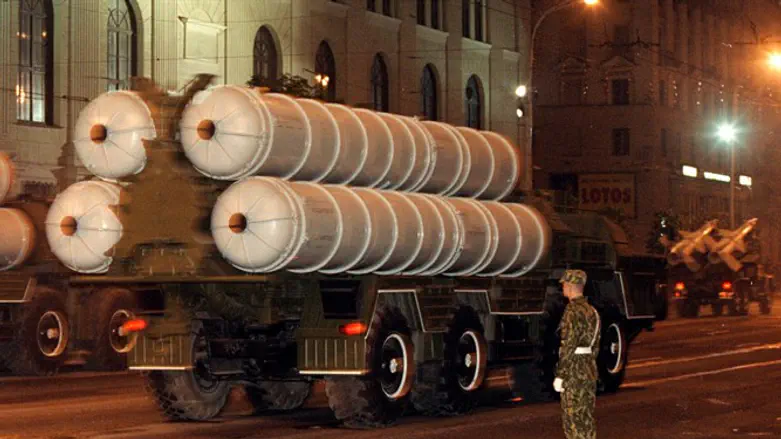
Russia is not in talks with the Syrian government about supplying advanced S-300 ground-to-air missiles and does not think they are needed, a top aide to President Vladimir Putin said on Friday, according to Reuters.
The aide, Vladimir Kozhin, made the comments to the Izvestia daily. Kozhin oversees Russian military assistance to other countries.
“For now, we’re not talking about any deliveries of new modern (air defense) systems,” Izvestia cited Kozhin as saying when asked about the possibility of supplying Syria with S-300s.
The Syrian military already had “everything it needed,” Kozhin added.
His comments came days after Prime Minister Binyamin Netanyahu’s visit to Moscow, where he held talks with Putin.
The Kremlin, however, played down the idea that it had performed a U-turn on the missile question or that any decision was linked to Netanyahu’s visit.
“Deliveries (of the S-300s) were never announced as such,” Kremlin spokesman Dmitry Peskov told reporters on a conference call, when asked about the matter.
“But we did say after the (Western) strikes (on Syria) that of course Russia reserved the right to do anything it considered necessary,” he added, according to Reuters.
Russia and Syria signed a deal in 2010 for the S-300 system but the missiles have yet to be delivered.
The Russians have deployed the S-300 around their own Tartus naval base on Syria's Mediterranean coast and the more advanced S-400 at their Hmeimim air base in western Syria.
Defense Minister Avigdor Liberman recently that Israel may strike the Russian-made S-300 anti-aircraft defense systems in Syria if they are used against Israel.
His comments followed a report in a Russian newspaper which said that Moscow could soon start to deliver S-300 systems to Syria.
Israel has made repeated efforts to persuade Moscow not to sell the S-300s to Syria, as it fears this would hinder its aerial capabilities against arms shipments to the Hezbollah terrorist group.
The missile system, originally developed by the Soviet military, but since modernized and available in several versions with significantly different capabilities, fires missiles from trucks and is designed to shoot down military aircraft and short and medium-range ballistic missiles.
Though since been superseded by the more modern S-400 system, the S-300s are still regarded as highly potent and outstrip anything that the Syrian government currently has.
Russia has in the past provided Iran with the S-300 missile system. Russian President Vladimir Putin signed a decreein 2015 lifting a ban on the delivery of the S-300 to Iran, explaining thathis decision was motivated by Iran's drive to find a solution in talks over its nuclear program.
(Arutz Sheva’s North American desk is keeping you updated until the start of Shabbat in New York. The time posted automatically on all Arutz Sheva articles, however, is Israeli time.)